Who is Zechariah talking about?
 "And I will pour out on the house of David and the inhabitants of Jerusalem a spirit of grace and supplication. They will look on me, the one they have pierced, and they will mourn for him as one mourns for an only child, and grieve bitterly for him as one grieves for a firstborn son. Zechariah 12:10
"And I will pour out on the house of David and the inhabitants of Jerusalem a spirit of grace and supplication. They will look on me, the one they have pierced, and they will mourn for him as one mourns for an only child, and grieve bitterly for him as one grieves for a firstborn son. Zechariah 12:10





.jpg)




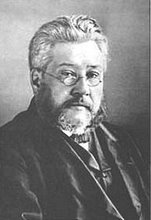



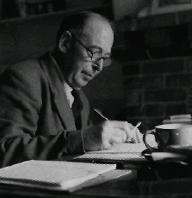

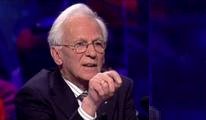
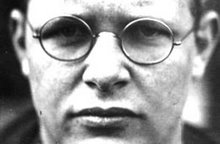
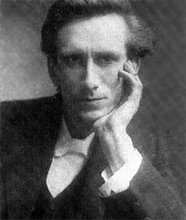


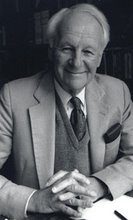


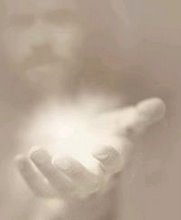








9 comments:
We Christians assume that it is the OT mirror of John 19:33.
Zechariah 12 opens with: “This is the word of the Lord concerning Israel,” and then goes into the first person, so the ‘me’ of this passage is the Lord. That correlates to the subtle shift to the third person in John 19, which is narrated rather than an utterance of the Lord.
The problem I have is that the Israel-arrayed-against-the-nations thing of Zechariah doesn’t really match the events of the temple period.
Is it possible that Zechariah is actually referring to the Second Coming in this chapter?
Yes, I think so, Carol. My father loved Bible study and he taught me: a prophet is looking at the whole scenery of mountains and describes what he sees as one big vision. But there can be large valleys and big distances between each mountain top that he describes.
I wonder how Jewish believers read passages like these because I can only think about Jesus when I read these words!
I like the way your father taught you about the prophets. I have never really thought about looking at them in such a way. Thanks.
I think your question of how faithful Jews read this passage is interesting. This is from Jews for Jesus website:
"Some say that Zechariah 12:10 refers to the Gentile nations who mourn because of the Jewish martyrs (or a particular unknown martyr) they have killed.
"Yet that is not the universal Jewish understanding. According to the views of some rabbis, two Messiahs would make their appearance: Messiah ben Joseph who would be slain in battle, followed by Messiah ben David who reigns as the victorious king. Any number of Jewish sources therefore refer this verse to the slaying of the Messiah ben Joseph. At least one commentator believes that the Messiah ben Joseph dies as an atonement for the sins of Israel..."
http://jewsforjesus.org/answers/prophecy/zechariah12
Very interesting verse. The Hebrew “to me” is very expressive, it points to the author of the prophecy, that is GOD. But there are some subtle distinctions, the transition from first person to third grabbed me. It seems to be saying “same essence of the author but different”?
It is common for this verse to be thought of as the three thousand at Pentecost. They had seen Messiah and many had yelled crucify. Yet when grace was poured out they repented.
This is more than likely a second coming reference, indicating a national repentance though.
Hard Hebrew lesson thanks
Thanks for your great comments, friends!
Ben Joseph? Ben David? That makes me think of Jesus again and again! :-)
Faithful orthodox Jews must have a hard time explaining this text without secretly thinking about Jesus Christ!
I know they also struggle with the interpretation of Isaiah 53:
He was despised and rejected by men, a man of sorrows, and familiar with suffering.
Like one from whom men hide their faces he was despised, and we esteemed him not.
Surely he took up our infirmities and carried our sorrows, yet we considered him stricken by God, smitten by him, and afflicted.
But he was pierced for our transgressions, he was crushed for our iniquities; the punishment that brought us peace was upon him, and by his wounds we are healed. We all, like sheep, have gone astray, each of us has turned to his own way; and the LORD has laid on him the iniquity of us all.
I think that Judaism is in accord with the idea that there is messianic prophecy throughout the Bible that reaches some sort of fruition in Isaiah but beyond that there is variation in belief.
Moshiach ben Yossef can be understood as a “suffering servant” messiah of the type of Joseph (Jacob’s son). Moshiach ben David can be taken to mean the heir to the throne of David. This absolutely fits with Christian belief in the first and second comings of Jesus.
The problem lies in when these two separate messianic identities arose. The Jewish Encyclopedia says that the idea of a personal Messiah did not arise in Judaism until the Maccabean period, although there were myths about Alexander the Great being the Messiah that date from 250 years earlier. Moshiach ben Yossef originated with medieval Rabbinic apocalyptic literature, according to the same source.
I’m willing to buy the idea that these two separate messianic personages originate with the Haggadah (what Christians would call “extra-Biblical sources”) but I don’t see how one can see the references in Isaiah et al as merely political.
Since most commentators agree that Job is a really, really old book, how could we square this idea with Job 19:25:
I know that my Redeemer lives,
and that in the end he will stand upon the earth.
The word used here for Redeemer is “go'el”, or “kinsman-redeemer” as in Ruth. Kind of brings us around full-circle, doesn’t it?
(BTW, as far as I know, Orthodox Jews believe in a personal messiah and the bodily resurrection of the dead.)
Paul,
Every Messianic Jew of my personal acquaintance (except for one oddity who has bought into some extreme Replacement Theology) sees this verse from Zechariah as referring to Messiah. I would concur.
Chad,
I guess the question wasn't what a Messianic Jew believes but what a non-Messianic Jew believes. My limited experience discussing it with my friends and neighbors has been there are as many opinions as people you ask. And I'm really interested in how these two personages of the Messiah evolved. I see it as a medievalism but is that accurate? (This is less a faith question than an historical question.)
I would be extremely grateful for your insights, since mine is by definition an outsider's viewpoint.
Post a Comment